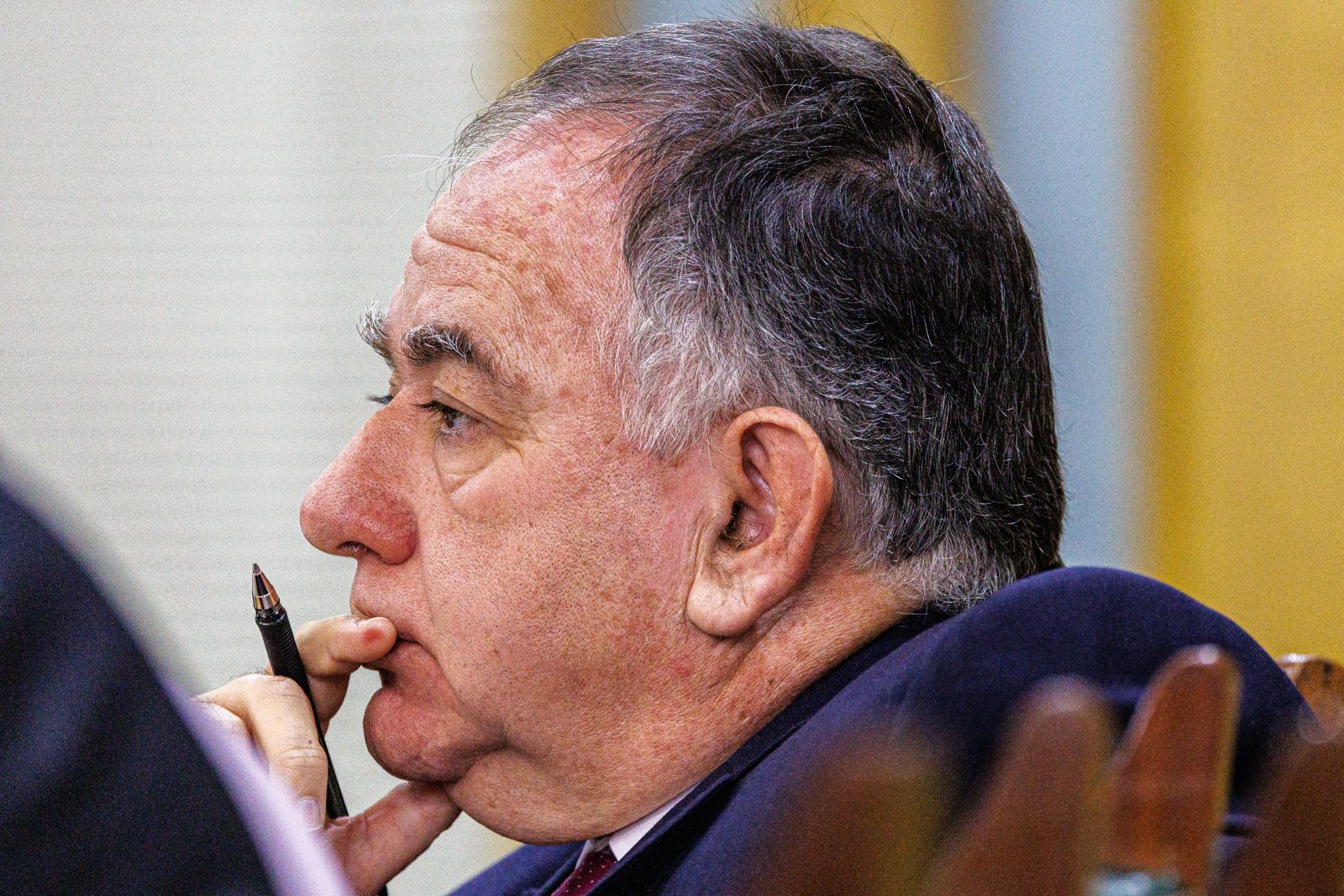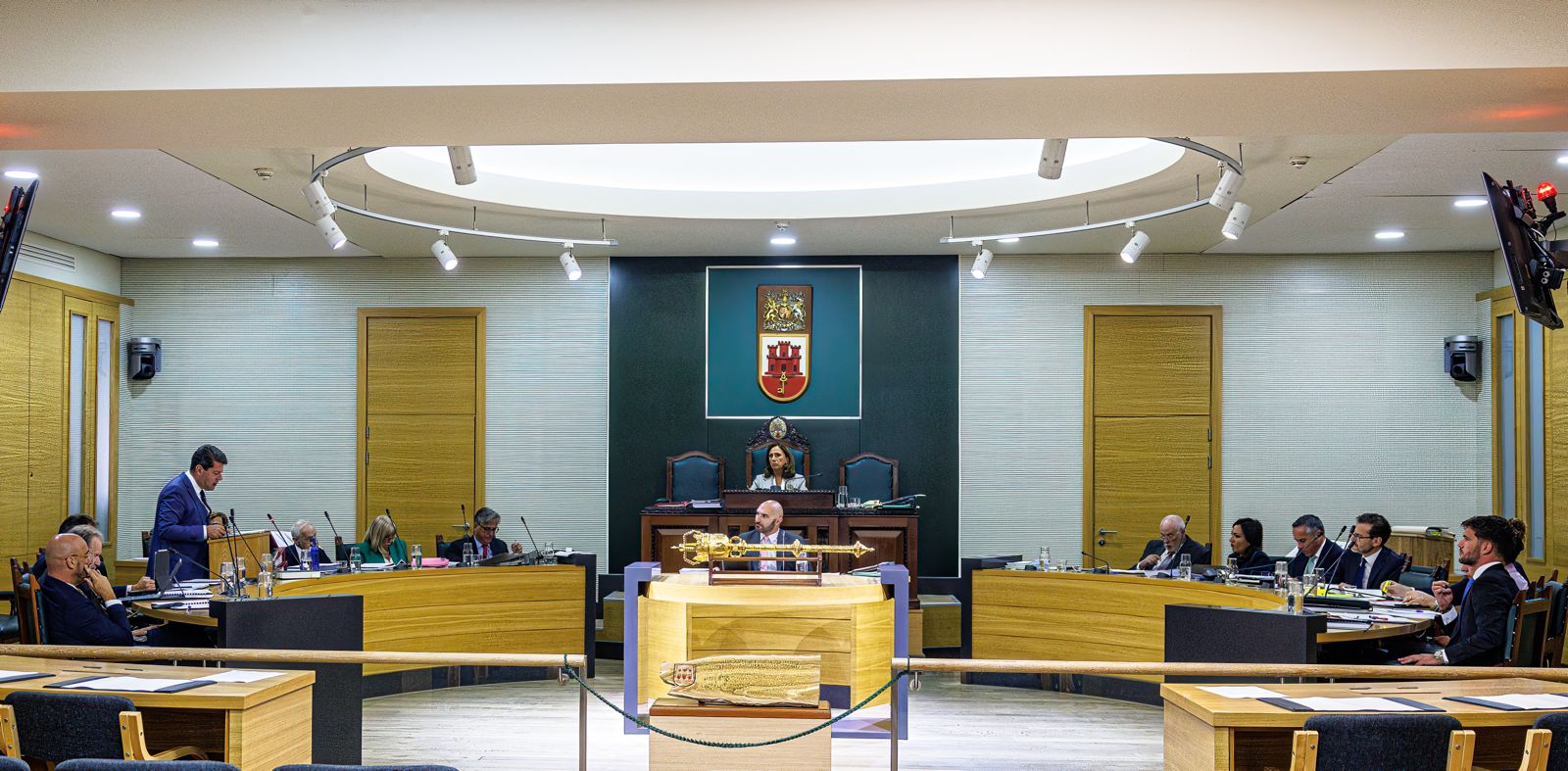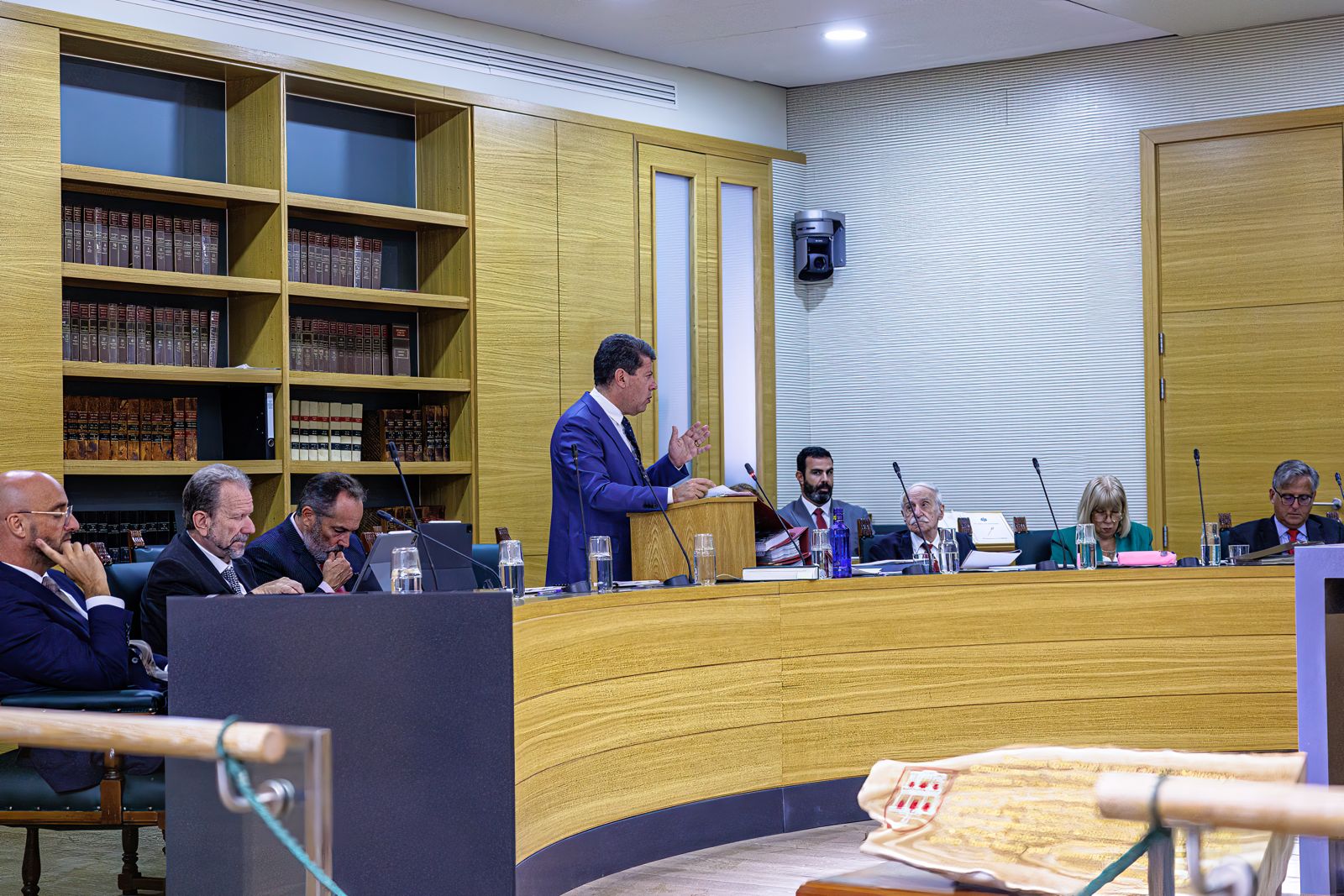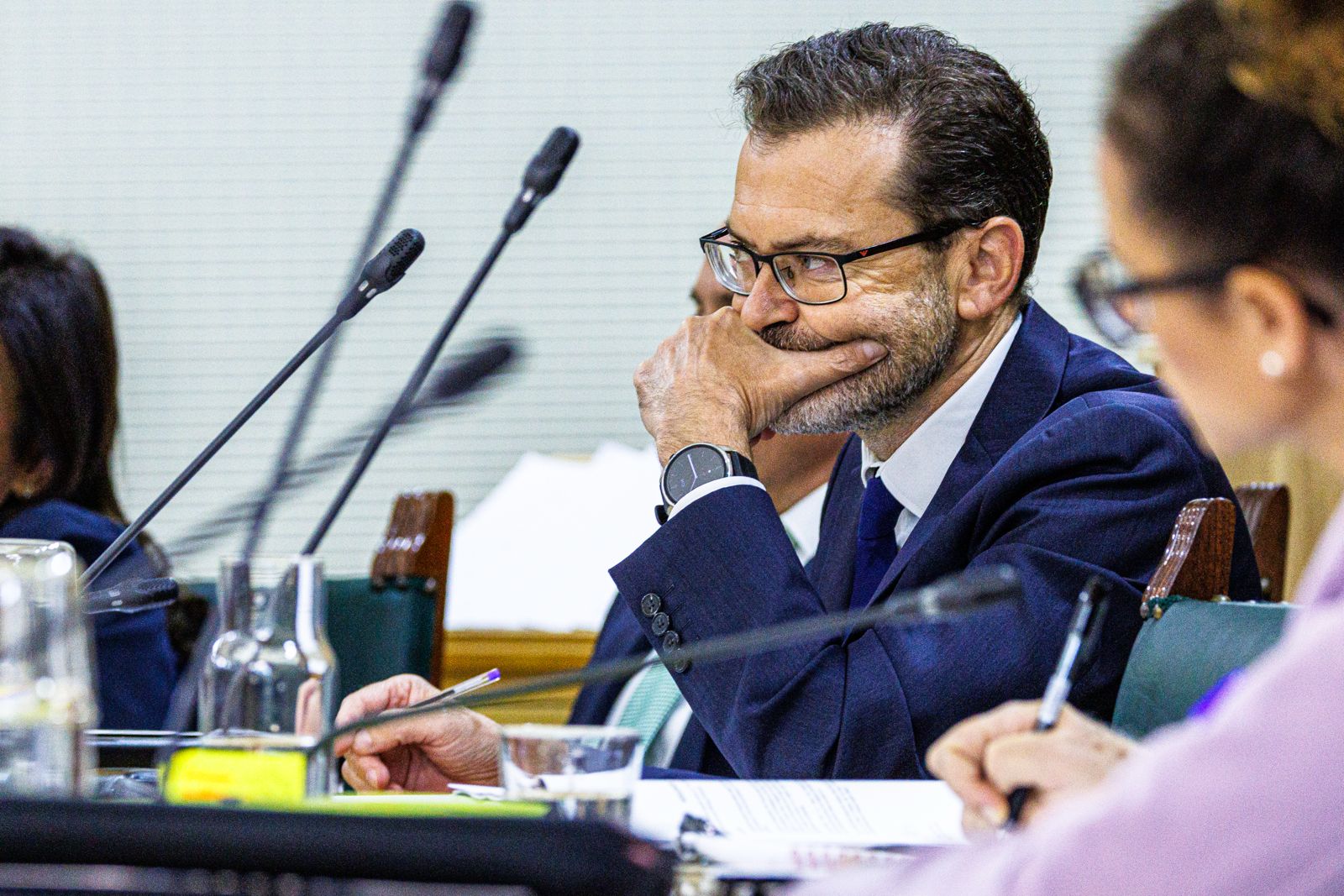CM opens parliamentary debate on disputed audit report and says legal opinion backs Govt position
Photos by Johnny Bugeja
Chief Minister Fabian Picardo told Parliament on Tuesday that the controversial 2018/19 Principal Auditor’s report was biased and strayed beyond the constitutional and professional boundaries of the auditor’s role, rendering it “fundamentally flawed”.
Mr Picardo said the Government’s position was supported by independent legal advice from London barrister Jonathan Fisher, KC, who concluded the report was “fatally flawed” for failing to meet international standards of independence and objectivity.
The Government welcomed scrutiny but would rebut it where it was “not accurate, not fair, not objective and not free from bias”, Parliament was told.
“It would not be right or proper to allow inaccurate, unfair, outdated, subjective, and biased reporting to remain unanswered,” the Chief Minister said.
He was speaking on the first day of debate on a Government motion challenging aspects of the audit report that it believes are flawed in fact and law.
The Chief Minister said audit reports were not binding, and that the Government had a duty to ensure its concerns were reflected in the parliamentary record.
The Government will amend the motion to include its detailed position on nine specific areas of concern within the report’s ‘value for money’ audit section.

Tensions were evident at the outset of the session, with GSD MP Roy Clinton requesting a division on the vote to commence the debate, ensuring all MPs’ positions were recorded.
The Opposition has described the motion as an attempt to undermine the report’s findings and stifle criticism, adding all ministers are effectively supporting an “assault on democracy” that seeks to “trash” the report’s author.
On Tuesday morning, there were no signs of any cracks on the Government bench as Mr Picardo embarked on a three-hour analysis of the legal boundaries he said had been overstepped by the former Principal Auditor in the report, and the professional benchmarks the Government believed he had fallen short of.
If anyone was expecting a short debate Mr Picardo soon laid that idea to rest, signalling that his own opening remarks would continue Wednesday and perhaps spill into Thursday, with remaining contributions from MPs – as well as the Chief Minister’s closing remarks – likely to drag into next week.
The focus of Tuesday’s submissions was technical and legalistic, far removed from the visceral nature of many of the exchanges outside Parliament after the 2018/19 report was laid in Parliament early in July.
Mr Picardo said the Government was not criticising the Principal Auditor but rather his work as contained in that report, adding it was essential that the parliamentary record reflect the Government’s concerns about the document.
The Chief Minister said that over the coming days, he would take Parliament through the audit report forensically to illustrate examples of findings that are “plainly wrong, inaccurate, unfair, subjective, and biased”.
“At the very least, I am confident that – once subjected to proper scrutiny - the unfair, inappropriate and unsubstantiated allegations, accusations and innuendoes in the report will be deemed by the public to be so unsustainable as to be unworthy of being considered reliable in any regard whatsoever,” the Chief Minister said.
Mr Picardo said that without that balance, the report and the criticism of the Government it had triggered risked exacerbating the “wholly unnecessary damage” he said had already been caused to Gibraltar’s reputation.
“I believe that this report is an utter aberration and that for that reason the Opposition should cautiously withdraw from reliance on it for its attacks on the Government and the public should rest assured that it can ignore its most incendiary, unsustainable and sometimes even nonsensical allegations,” he added.
He said the law and jurisprudence – meaning case law where issues of this nature had been previously tested in court – indicated that the former Principal Auditor had gone beyond his remit without proper regard for either the facts or the process of engaging with the Government to allow for timely responses.

TRUST AND FAITH
The Chief Minister plans to deliver detailed rebuttals of nine key areas flagged by the audit report, but this will come as from Wednesday.
On Tuesday in Parliament, Mr Picardo’s focus was on a setting out the Principal Auditor’s statutory role and its limitations, and the legal context of his work.
One key concern was that, in the Government’s view, the former Principal Auditor had overstepped his remit by commenting on Government policy, for example by supporting the creation of a Public Accounts Committee, something the GSD had long championed and the GSLP/Liberals opposed.
The Government believes it “cannot be a coincidence” that there is “symmetry” between the views of the former auditor and those of the GSD in several areas of the report.
“The report talks about policy and it talks about their policy, not ours,” Mr Picardo said, adding: “Our concern is that in many areas, those sections stray beyond the aspects on which an audit should opine.”
He said that when placed side by side, it was clear sections of the report were “nothing more and nothing less than a channel for the [GSD’s] partisan views” on policy.
Mr Picardo said Gibraltar’s institutions could withstand criticism but that this should be “neutral and grounded in fact, objective, independent and impartial”.
“When those criteria are not met in the report, we do not consider such unwarranted criticism to represent idle gossip or harmless rumour,” he told Parliament.
“Such unsupported and unfounded criticism in a report from a constitutional post holder hurts the fabric of our nation.”
“It gratuitously and unnecessarily undermines the trust and faith that our community has in their institutions.”
“And it does so at a time when that trust is already fraught for reasons which relate more to the insidious nature of social media than anything else.”

PRECEDENT
Mr Picardo cited several cases in other common law jurisdictions where audit findings had been contested, sometimes even in court.
That, he said, demonstrated that challenging the content of an audit report was not an assault on democracy “or anything of the sort”, as had been suggested by the Opposition.
He revealed that one Gibraltar Government minister had “rightly” sought a legal opinion from a Gibraltar lawyer over personal references to him and his department in the 2018/19 audit report and was advised “in no uncertain terms” that the conclusions “breached well-recognised and accepted principles of procedural fairness”.
“Suffice to say now that the only reason why the Gibraltar Audit Office is not presently a respondent to a judicial review claim is because I stopped the minister from commencing the proceedings,” Mr Picardo told Parliament.
“I have no doubt, however, that the minister would have prevailed in his legal challenge had he brought it.”
He stressed, however, that Gibraltar should have full confidence in the office of the Principal Auditor and in his team, and that the motion was concerned solely with aspects of the 2018/19 report.
The Chief Minister said case law from other jurisdictions showed there was “clear and top-level” jurisprudential authority that an auditor’s independence did not immunise them from accountability.
“If an auditor oversteps his legal boundaries or appears biased, he can be called to account,” he said.
“That is no more and no less that what this Government, under my leadership, has done.”
Among the concerns Mr Picardo said he would examine in detail is criticism in the report that the Government had at times not replied to requests, even though some of those requests had been made after close of business on the former Principal Auditor’s last day in office before retirement.
The audit report, the Chief Minister said, failed to maintain “even the appearance of detachment” expected from an impartial auditor.
“The Principal Auditor’s statutory role is to audit and certify the accounts of the Government,” Mr Picardo said.
“The Auditor’s constitutional role is not to inappropriately insinuate corruption or accuse Government officials of constitutional impropriety in the manner of an advocate or judge.”
The Government had been “firmly advised” that the report’s “disputed” findings “fall well short” of the required level of objectivity and impartiality, Parliament was told.
The report, the Chief Minister said, “presents definitive accusations and legal conclusions without the tempering caution of provisional language.”
UK law explicitly states that the power to examine does not entitle the Auditor General – the UK equivalent of the Principal Auditor - to question the merits of the policy objectives of any department, authority or body that has been audited.
While this statutory provision is not replicated in Gibraltar legislation, Mr Picardo said the Government had received legal advice that these core principles enshrined in UK legislation applied to the Principal Auditor in Gibraltar because they had been made clear in case law applicable in Gibraltar.
One relevant case cited by the Chief Minister specifically clarified that “…auditors cannot exercise control over questions of policy but are entitled to challenge administrative actions.”
In the case of the 2018/19 report, the former Principal Auditor “far exceeded his remit” and made “serious errors of law” in the application of Gibraltar law and applicable case law, “insinuated the presence of corrupt practices”, and displayed “an apparent bias” by aligning parts of the report with the Opposition in various respects.

LEGAL OPINION
Mr Picardo said the legal opinion sought from Jonathan Fisher, KC, a London-based barrister specialised in white collar crime and regulatory disputes, supported its position.
“If the Government was advised that it got things wrong, then we would have no choice but to take it on the chin, learn and apply lessons, and move on,” the Chief Minister said.
“The legal opinion obtained, however, validated the responses of the Government to the report…”
Quoting extensively from the legal opinion, the Chief Minister said Mr Fisher found that the approach to production of the report was “…inconsistent with the fundamental norms of international auditing practice which make clear that auditors are tasked with evaluating the implementation of policies rather than reviewing the policies themselves, while at all times maintaining a clear division between administrative oversight and policymaking.”
Mr Fisher – quoted by the Chief Minister - continued that “…in my view the report fails in these material respects, in both form and substance, to conform to international standards of independence, and professional objectivity.”
“The report contains material errors that reflect a lack of competence in its finalisation, and regrettably, in my view, the report fails to adhere to the principle of auditor independence, and professional accounting, ethical and audit standards expected of a Principal Auditor.”
“In consequence, the report is fatally flawed…”
Mr Picardo also noted on several occasions that, while the criticisms of the Government were contained in a section of the report on ‘value for money’ audits relating to matters as recent as this year, the report had given the 2018/19 Government accounts “a clean bill of health”.
Those two things together, he said, pointed to a fundamental contradiction.
“Either the public accounts are correct in all material respects or there is a lack of transparency and financial accountability on the part of the Government,” the Chief Minister told Parliament.
“Both things cannot, logically, be true.”
The debate on the motion continues today, when the Chief Minister will begin detailed responses to specific criticisms raised in the audit report.









